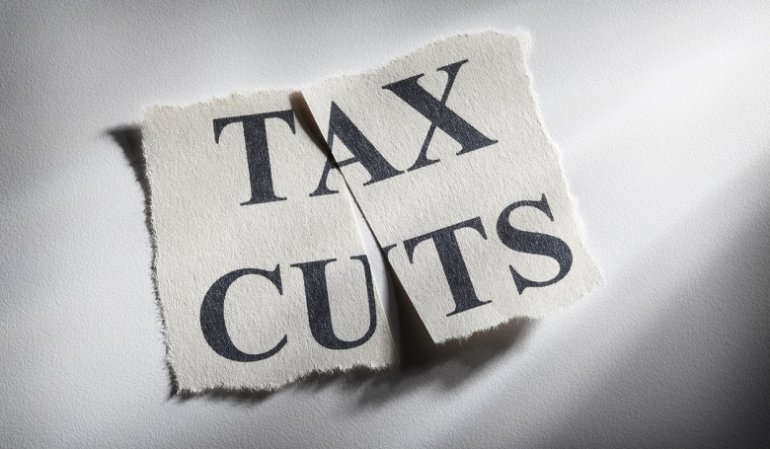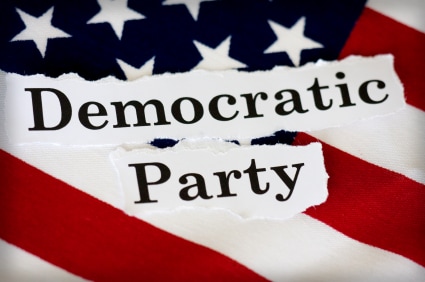(ThyBlackMan.com) On Aug. 8, President Trump instituted four executive actions in the ongoing battle against COVID-19. One of the four was a memorandum instituting a deferment on the collection of payroll taxes of certain employees. There is a great deal of confusion about what this means. Let’s break this down to get a detailed understanding of what’s going on here.
Background
The executive action drawing the attention is that related to the payment of withholding and employment taxes. The action declares that the Treasury secretary is directed to “defer” an employer’s obligation to “withhold, deposit, and pay” Social Security and Medicare taxes from the paychecks of certain employees. [See: Memorandum on Deferring Payroll Tax Obligations in Light of the Ongoing COVID-19 Disaster, Presidential Memoranda, Aug. 8, 2020, §2.]
The employees to whom this action applies are those making less than $4,000 on a bi-weekly basis, or no more than $104,000 per year. [Ibid, §2(b).]
The deferral applies only to payroll taxes due on wages paid from Sept. 1 through Dec. 31, 2020. An employee bears a Social Security and Medicare tax burden equal to 7.65% of wages. Thus, a person earning the max of $104,000 annually will see an increase in take-home pay of about $2,560 over the period during which the directive is in effect.
Not a tax cut
Let’s be clear on what this is not. It is not a tax cut. Neither is it a tax rebate. It is simply a temporary “deferral.” The deferred taxes become payable as of Jan. 1, 2021. Thus, the employee still owes the employment taxes that were not withheld beginning Sept. 1. The order is silent as to exactly when and how the deferred tax must be paid.
Under ordinary circumstances, an employee who was paid compensation on which Social Security and Medicare taxes were not withheld must report those taxes on a separate form filed with the tax return. That form is IRS Form 8919, Uncollected Social Security and Medicare Tax on Wages. Since payroll taxes subject to the president’s directive are the obligation of the employee, anyone who had their taxes deferred under this program will be personally responsible to file Form 8919 with his 2020 tax return and to pay the taxes that otherwise would have been withheld.

An interest-free loan
Though you get an increase in your take-home pay up to $2,560, you don’t get to keep the money. It must be paid back to the IRS effective Jan. 1, 2020. However, section 2(b) of the memo states that the amounts deferred are deferred “without any penalties, interest, additional amount, or addition to the tax.”
So it is clear that this is merely a penalty- and interest-free loan from the government. The loan is due and payable after Dec. 31, 2020, and, it seems to me, it must be paid no later than April 15, 2021, which is the due date of the 2020 tax return. There is no suggestion in the memo that the deferment goes beyond April 15, 2021.
Don’t bet on forgiveness
It is also true that the memo makes no attempt to claim that the taxes deferred either are or will be forgiven in the future. I rather doubt the president has the constitutional authority to issue such an order.
Instead, Section 4 of the memo instructs the Treasury to “explore avenues” that might lead to the “eliminat[ion] of the obligation to pay the taxes deferred.” What may be such avenues?
The IRS already has the statutory authority to compromise (forgive) delinquent tax debts under code section 7122. But that requires the taxpayer seeking to compromise to comply with substantial financial disclosure requirements and limitations. I believe it would require deliberate congressional authority to bring these specific employment tax debts under the sweep of section 7122. Short of that, a person would have to meet all existing Internal Revenue regulations and guidance in order to achieve a compromise of delinquent liabilities.
Who owes the taxes?
If no plan of forgiveness is put into effect, who owes the deferred taxes? Foundationally, those taxes are owed by the employee who earned the income. That is why the employee is responsible to file Form 8919 with his or her return.
But additionally, and what may come as a surprise to many unsuspecting employers, is that the employer is equally liable for the tax. Code section 3403 dictates that the employer is legally responsible and liable for the payment of all employment taxes, even if the money was paid to the employees. As is stands, of course, the statute makes no exception for taxes deferred under a presidential memorandum. Therefore, if the employee does not pay the tax, the IRS certainly can – and I expect will – look to the employer for collection.
Both employees whose taxes were not withheld and employers who did not withhold might wake up on April 15, 2021, to discover they owe taxes to the IRS. The joy of receiving higher take-home pay for four months might well become the misery of dealing with IRS enforced collection.
The president’s authority
One might ask what the president’s authority is to issue an executive order suspending the operation of federal tax law. Well, to start with, this directive is not an executive order at all. It does not purport to be an executive order. Rather, the directive is styled as a “presidential memorandum.” It appears to be in the nature of mere suggestions and expressed wishes – rather than orders – to a federal agency with regard to law enforcement.
An executive order is the means by which a president instructs federal agencies how to carry out their duties. The key element of an executive order is that it must be consistent with legal parameters already set by Congress and the Constitution. That is to say, executive orders cannot make law; they merely express the president’s direction on how to enforce the law, per his charge under Article II of the Constitution. That article provides that the president “shall take Care that the Laws be faithfully executed.”
A presidential memorandum, on the other hand, carries no such force. Indeed, in section 5(c) of the memo, it provides that the memo “is not intended to, and does not, create any right or benefit, substantive or procedural, enforceable at law or in equity by any party against the United States” or any of its officers, agencies or employees.”
The bottom line is that it appears to me that the presidential memorandum is not worth the paper it is written on when it comes to substantive tax relief.
To withhold or not to withhold
In light of the forgoing, the question for employers is, starting Sept. 1, should you continue to withhold on your employees as you have in the past, or do you subscribe to the deferral period and give your employees 7.65% larger paychecks until the end of the year?
Here are some factors to consider in making the decision.
1. It is important to understand that the memo does NOT apply to federal or state income taxes. The deferral applies only to the employees’ share of Social Security and Medicare taxes. Nor does the deferral apply to the matching Social Security tax imposed on the employer. So to be clear, we are talking only about the employees’ share of employment taxes under code sections 3101 and 3201, per section 2 of the memo.
2. If you elect not to withhold the taxes, make triple sure your employees know and understand that this is not a tax cut or a tax rebate. This is simply a deferral, and they are responsible to pay the taxes after Jan.1 under terms and conditions that we don’t yet fully understand. Moreover, the deferral is not permanent. It ends Dec. 31, 2020.
3. The deferral is not mandatory; thus employees have the choice to opt out if they don’t wish to incur a tax liability on the deferred withholding. Exactly how that might occur is not clear at this time, but I certainly would not force my employees to accept the deferral, and thus, a tax debt.
4. You as the employer need to understand that if the employee fails to pay the taxes, you are liable for the tax. Nothing in the presidential memorandum suspends or otherwise undermines the scheme of liability established under code section 3403.
5. The IRS cannot force employers to stop withholding. Even if your employees wish to take part, you as the employer can choose to continue withholding and depositing as you have always done. In this scenario, you absolutely avoid any liability for an employee’s potential failure to pay.
Written by Daniel J. Pilla
Official website; https://twitter.com/danieljpilla

















Leave a Reply